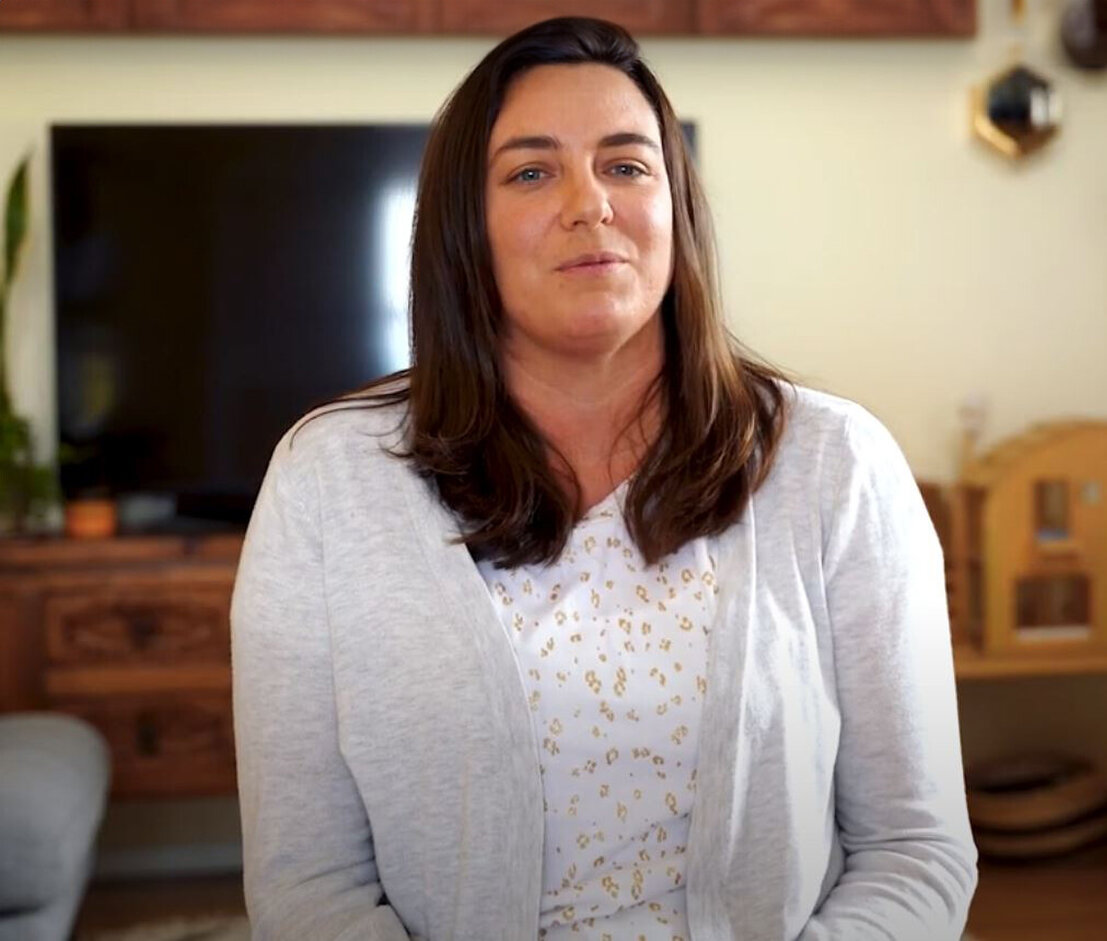Karrie's Story
41-year-old Karrie emigrated to New Zealand from America 8 years ago. With her partner, Rich, they have loved exploring the country and have 2 daughters, Norah aged 4 and Charlotte, 9 months. It was 3 months after the birth of Charlotte that Karrie was diagnosed with pancreatic cancer. This is her story.
“The symptoms were quite vague. I had had abdominal discomfort and bloating for the last 3 years with little to no improvement with elimination dieting. I was referred to a gastrointestinal doctor and had a colonoscopy without any findings. In November 2019, I went to the urgent care doctors due to pain and tightness in my chest.
My symptoms and blood work indicated inflammation in my pancreas and liver and most likely due to gallstones. An ultrasound of my abdomen was performed and along with finding I did have a gallstone, the radiologist unexpectedly found an 8 cm mass on my pancreas. After having more scans I was referred to a specialist in Auckland who performed a distal pancreatectomy and splenectomy in December 2019. It was only after my diagnosis that I began to notice a dull ache on the left side of my back that I would have previously ignored.
When I was first diagnosed, I was in complete disbelief as my symptoms were vague and I didn’t feel “unwell” enough to think I had cancer. As this new reality set in I tried to remain positive which was put to the test when I received the results of my first CT scan, revealing I had “suspicious” spots on my liver and there was concern the cancer had spread.
Having these conversations with health professionals is hard, but not as hard as coming home to 2 young children, unsure of how much time you have left with them. The unwavering support of my family provided me with the strength and inspiration I needed to face these hard times and my first bit of good news came just after my surgery when the biopsy on my liver was negative with no sign of the cancer spreading.
Life didn’t stop after having a cancer diagnosis, but it has definitely changed direction. At this early stage, we are still hopeful that the surgery was curative and that no chemotherapy or radiation will be necessary. However, after having an open surgery and losing half my pancreas and spleen the physical recovery has been extremely hard especially with young children to take care of. I was lucky to have my mum come from the US to look after the family for the 10 days in hospital as well as the 6 weeks after where I wasn’t even allowed to lift my children during the recovery period.
With pancreatic cancer, you face tough statistics and a complex surgery but you should never lose hope. Even with the support of friends and family, you may still feel alone and it can help to connect with others that have gone through similar. I have found a few online groups that are great for advice and most importantly, understanding and compassion.”
We are very grateful to Karrie for sharing her story to help raise awareness and provide hope to others facing the same diagnosis. Karrie’s concluding message is one we wholeheartedly agree with:
“Cancer doesn’t always look how you imagined. You shouldn’t ignore digestive issues or unexplained pain in the abdomen or back even if it requires you to be your own advocate and push for further tests.”
